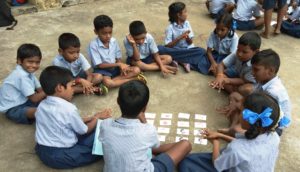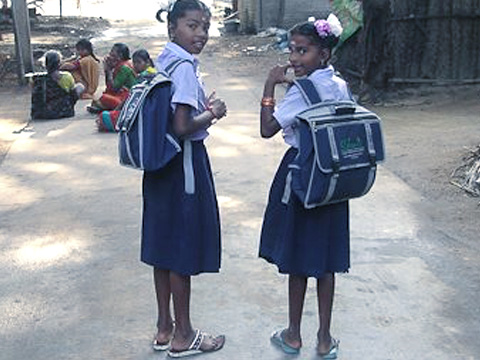Once the Seeds of Change program is completed on one of the four topics (Waste management, water and sanitation, personal hygiene and social cohesion), the children participate in a “Child-to-Child” session by raising awareness on one of the issues to other children, to their family or community.
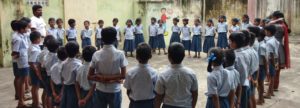
The “Child-to-Child” concept is based on the idea that when they are given the chance, children can play a critical role in solving the problems they face, and that they should be empowered to participate in the realisation of their rights. Once children master a topic, it’s time for them to spread the messages to their friends, families and communities with the tools provided by the social workers during the program.
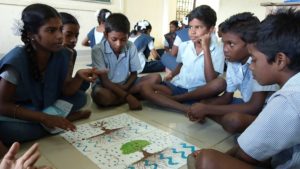
This week, Sharana completed “Child-to-Child” sessions in three different schools around Puducherry. On November 3, 2018, Anbu, Bhavani and Ferdinand organized a session in the Government Primary School of Aranganur. 20 Children from the 4th standard have followed a program on the topic of personal hygiene, since the beginning of 2018.
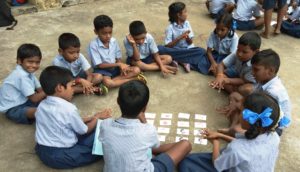
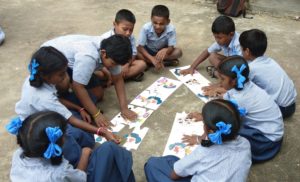
Having completed the course, they were ready to spread the “good behaviours” to 30 children from the 3th and 5th Standard of their school by facilitating puzzle activities for small groups. The children acted like awareness messengers, leading the puzzles as educators. They followed the example of the social workers by not giving answers to the puzzles but instead giving clues and hints. This method aims to make the children think, thereby increasing their engagement with the issue. During this session, the social workers only act as observers and move around from puzzle to puzzle just to check how things are going or help a particular group if they ask for it.
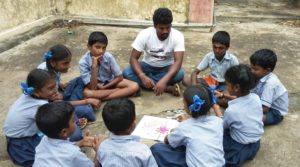
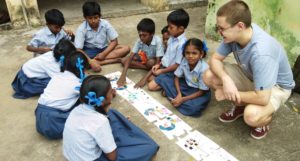
On Tuesday 4th of December, one “Child-to-Child” session about the waste management was organized in the Government Middle School of Sanyasikkuppam. This was conducted by the 30 children from the 8th standard who has taken part in the program since February 2018. 30 younger children from the 6th and 7th standard played the puzzle activities and were coached by those who were already sensitized to the waste management issue.
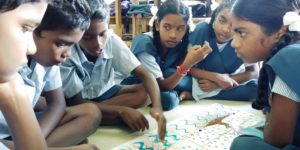

Finally, Anbu, Bhavani and Ferdinand went to Bharathi, Government Higher Secondary School of Bahour to complete a “child to child” session with 30 children from the 8th and 9th standard who played the role of awareness messengers for 30 children from the 6th and 7th standard.

The “Child-to-Child” sessions can take other forms, depending largely on the time and the resources the social workers have. For example, if the educators spend over 2 or 3 days with the children, they can decide to organize a drama play by them for their family, their friends and other members of the community.
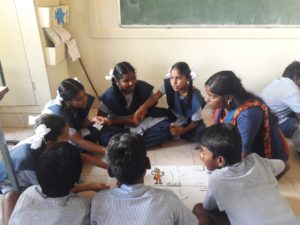
Once the children have completed all the Seeds of Change games and facilitated a “Child-to-Child” session, Sharana carries out an evaluation to see if they understood the messages of the sessions and if their behaviour changed accordingly. To do so, the social workers carry out an impact assessment in the following weeks with the children, consisting of knowledge questionnaires and behaviour tests (these are done with both the children and the community). This assessment will be compared with the evaluation done before the sessions to highlight the progress of the children.
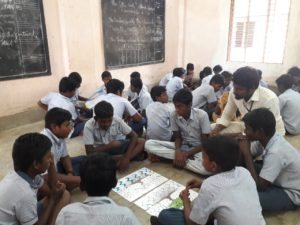
Finally, a concrete action plan is also set up to take meaningful steps towards solving some of these issues in the community.

